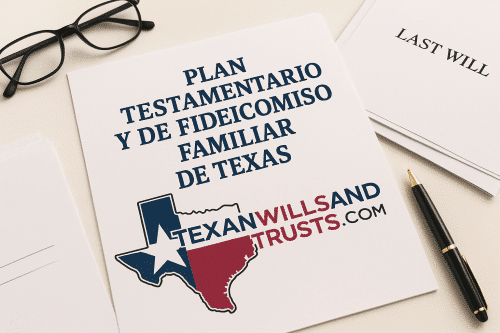Wills and Trusts
Do I Need a Will or Trust in Texas?
When starting estate planning in Texas, one of the first decisions you’ll face is whether you need a will or trust. Both documents are tools to pass down your property, but they work very differently under Texas law. Understanding how a will or trust fits into your goals can help you make the right decision for your family.
Understanding a Will or Trust in Texas
A will is a legal document that states who should inherit your property after you pass away. It can also name guardians for minor children. However, a will must go through the Texas probate process, which involves court supervision, costs, and delays.
A trust, by contrast, is a legal arrangement that lets a trustee manage property for your chosen beneficiaries. A properly funded revocable living trust can avoid probate entirely, allowing your loved ones to manage and distribute assets more quickly and privately.
Choosing a will or trust depends on what matters most to you — whether that’s simplicity now or smoother transitions later.
Pros and Cons of Choosing a Will
Advantages:
- Simple to create
- Lower upfront cost
- Covers basic estate distribution needs
Disadvantages:
- Requires probate
- Court fees and delays for your family
- Becomes public record
- Offers no protection if you become incapacitated
If you create only a will, your family will still need to navigate the probate court system, even for relatively simple estates.
Pros and Cons of Choosing a Trust
Advantages:
- Avoids probate entirely
- Immediate access for beneficiaries
- Maintains privacy
- Includes incapacity planning
- Simplifies handling real estate and investments
Disadvantages:
- Slightly higher upfront cost
- Requires transferring property into the trust
A trust provides much more than a way to distribute your assets — it also acts as a safeguard during your lifetime if you are ever unable to manage your own affairs.
Situations Where a Trust Makes More Sense
In many cases, Texans benefit more from a trust than a will. Consider choosing a trust if you:
- Own real estate
- Have minor children
- Want to avoid court proceedings
- Value privacy for your family
- Are part of a blended family
- Want someone to manage your assets if you become incapacitated
A will or trust decision often comes down to whether you want to leave your family with a court-supervised process or a smoother, private transition.
When a Will May Be Enough
A simple will might work for you if:
- You have minimal assets
- You rent your home instead of owning
- You’re not concerned about probate costs or public records
- You are leaving everything to one person
Even in these cases, it’s important to know that probate will still be required to distribute your property.
Risks of Not Having a Will or Trust
If you don’t create either a will or trust, Texas intestacy laws will decide who inherits your property. This can lead to surprising results, especially for blended families or unmarried partners. Without a plan, your family will likely face costly court proceedings, delays, and potential disputes.
Planning now ensures that you — not the state — control your legacy.
Making the Right Choice for Your Family
Choosing between a will or trust in Texas is one of the most important estate planning decisions you can make. For many Texans, a trust-based plan offers greater peace of mind, faster transitions, and better protection during incapacity.
At TexanWillsandTrusts.com, we make it easy to create a Texas Family Trust Plan that includes both a customized will and a revocable living trust. You’ll get everything you need to protect your family without the hassle of expensive, drawn-out legal processes.


